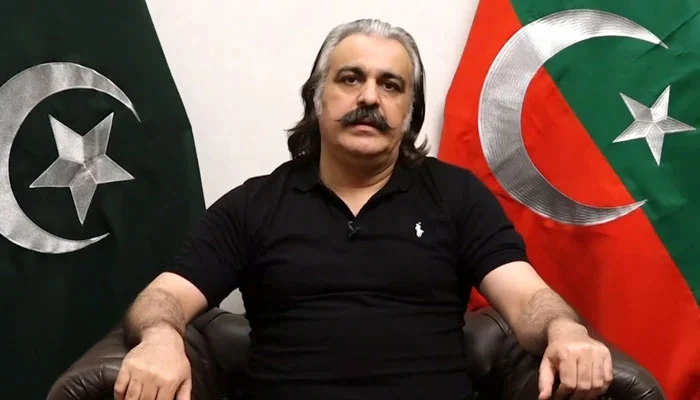Khyber Pakhtunkhwa Chief Minister Ali Amin Gandapur has come under fire after his controversial remarks on “Good Taliban” during a so-called All Parties Conference in Peshawar on July 25, 2025. His statement, suggesting that Pakistan’s intelligence agencies support these groups, has fueled a heated debate about the province’s security and governance.
Security analysts dismiss the notion of “Good Taliban” as a political fiction propagated by PTI and allied groups like PTM. They argue that Gandapur’s remarks only legitimize former militants who surrendered and chose to live peacefully, labeling them as pawns in his political narrative.
Ironically, groups like Fitnah al-Khawarij, PTM, and PTI now target those very former Taliban members who laid down arms and joined the state’s fight against terrorism. Sources claim that PTI and PTM often pressure the police to hand over surrendered fighters to Fitnah al-Khawarij, ensuring they are executed as a warning to others who might support the state.
The provincial government had promised to rehabilitate these individuals by equipping them with skills to reintegrate into society. Critics now question whether Gandapur’s administration has fulfilled that responsibility. “Law and order is the provincial government’s duty,” one security official stated. “If KP police and CTD performed effectively, Fitnah al-Khawarij and any so-called ‘Good Taliban’ would be handled without the need for federal agencies.”
Gandapur’s comments have also reignited concerns over PTI’s long-standing ties with militant networks. Past policies, such as the 2021 release of over 100 dangerous prisoners under the guise of a ‘goodwill gesture,’ backfired when many rejoined terrorist activities. Allegations persist that PTI leaders, including Gandapur, allowed militants safe passage and shielded them from operations.
Interior Minister Mohsin Naqvi recently revealed that a senior KP official pays regular extortion to militants in Dera Ismail Khan—raising questions about why Gandapur family properties in the area remain untouched.
The backlash deepened after several members of local peace committees, including Tuwab, were assassinated for resisting militant infiltration. Analysts say the arrest of surrendered Taliban members in Bannu further destabilized the region, allowing terrorists to regain a foothold.
Experts stress that the idea of “Good Taliban” is nothing more than a smokescreen. “The state does not support anyone who breaks the law,” a security source emphasized. “Those who pick up arms against Pakistan face the full force of the state.”
Critics argue that Gandapur’s rhetoric undermines the fight against terrorism and destabilizes KP. They call on his government to abandon vague labels like “Good” and “Bad Taliban” and focus on strengthening governance and law enforcement—before more innocent lives and the province’s fragile economy are lost.


